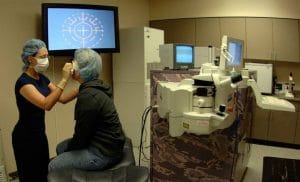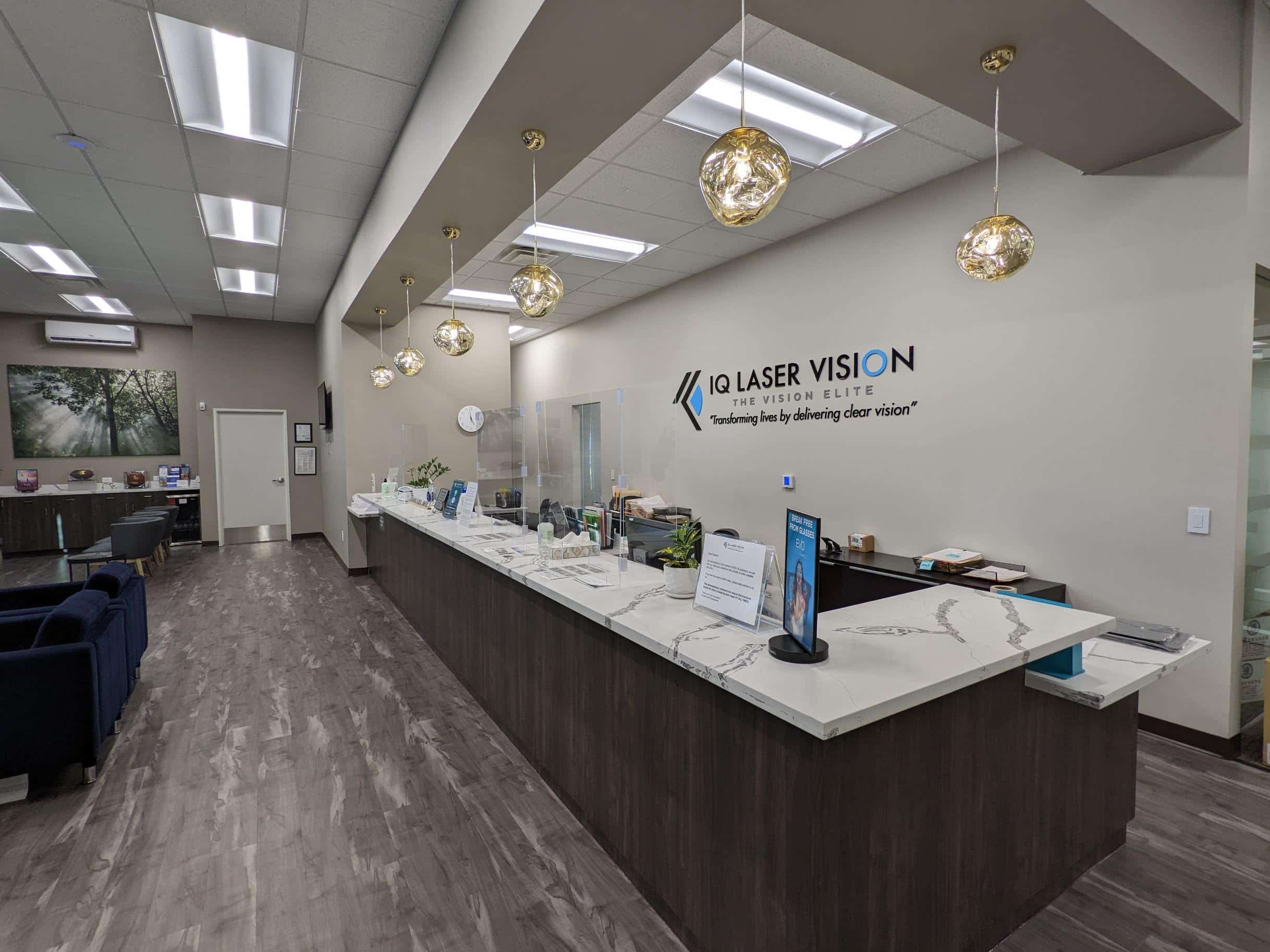Halos, dry eyes, even the risk of infection. There are some complications that can occur with one of the world’s most popular treatment for refractive eye surgery or laser vision correction. In fact, some people who receive LASIK treatment also suffer from long-term complications that never seem to go away. The question is, if you knew all the risks associated with LASIK, would you still get the procedure? Most people would, as the risks associated with LASIK are very small.
In fact, LASIK has a huge success rate, and a lot of people who get this procedure done. They find that they can benefit from almost pristine vision as a result. However, whether you’re worried about the risks or not. It’s important to make sure that you understand all the facts before you agree to LASIK eye surgery.
The Truth About LASIK Risks

According to studies, over 10 million Americans have had LASIK surgery ever since the FDA approved it back in 1999. Thousands of LASIK surgeries are performed each year. And the satisfaction rate among patients who get this procedure is remarkably high. Of course, just like any other surgery, LASIK does come with its risks. This is something that you need to be aware of when you’re deciding whether LASIK is right for you.
The appeal of LASIKis obvious. It gives you a chance to get rid of the daily routine of contact lenses. Or the constant stress of eye glasses, and enjoy incredible vision. In fact, LASIK can even make financial sense over time, because of the money you’ll save on contact lenses.
While LASIK is FDA approved, it’s worth noting. The FDA doesn’t have any rules on what people must tell a patient during a consultation. This is why it’s so important to pick an eye surgeon who is ready to answer all of your questions! And even turn you down for the procedure if they feel that you’re not the right candidate. Look for a surgeon who is selective about their patients, and a wealth of experience that demonstrates their success rate.
Highly selective eye surgeons and highly selective patients generally lead to better outcomes. However, it’s a good idea to be aware of all the risks, just in case.
The Most Common LASIK Risks
Complications in LASIK that result in a loss of vision or long-term problems are very rare. However, certain side-effects like dry eyes and visual disturbances are quite common. The good news is that these issues generally clear up after a couple of weeks of months. The most common risks of LASIK include:
- Dry eyes: Surgery with LASIK can reduce your tear production for a temporary period. For the first six months after a surgery, your eyes might feel excessively dry as they heal. A dry eye condition might also make it difficult to see clearly. Your eye doctor may recommend using eye drops to correct the problem.
- Halos and glare: After surgery with LASIK, some patients experience changes in their vision. That include glade, halos around bright lights during the night, or even periods of double vision. Often, this issue will disappear within a few weeks. If it continues for longer, it’s important to speak to your surgeon.
- Under corrections or over corrections: Although a lot of people see an improvement in their vision after LASIK eye surgery. Not everyone will end up with 20/20 vision. If the laser doesn’t remove enough tissue from your eye. Then you won’t get the results you were hoping for, and you might even need a secondary procedure. Alternatively, if the laser removes too much tissue from your eye, then this can reduce your vision clarity too. Over-corrections are harder to fix than under-corrections.
Additional Risks
- Astigmatism: If your eye surgeon removes too much tissue in one area of the eye, and too little in another. Then the shape of your eye may change, leading to problems like astigmatism. If you suffer from this issue, you may need to get additional treatment.
- Flap problems: When a LASIK procedure is done, it requires the surgeon to make a small flap into the tissue over your eye. Folding or removing the flap during surgery can sometimes lead to complications, including a potential infection. In some cases, the flap can also hinge incorrectly during the healing process, which means that you’ll need to have it fixed by your surgeon as quickly as possible.
- Vision changes or loss: Some very rare cases lead to poorer vision after LASIK than the patient had before the procedure. This happens in very few cases, and if you have the right surgeon, it shouldn’t be something you need to worry about.
- Eye infections: Infections are also something that can occur rarely after LASIK. Because the flap of the corneal acts as a bandage, eye infections are less likely in LASIK procedures than they are in surgeries that involve removing the flap entirely. However, you will need to follow the instructions given to you by your surgeon to keep yourself protected from infection.
Factors Which Increase Risks
There are some health conditions that can increase your chances of suffering from side effects after LASIK surgery. For instance, Doctors don’t always recommend refractive laser surgery for those who suffer from conditions like rheumatoid arthritis, weakened immune systems, or problems with persistent dry eye conditions. Some people also have unstable vision caused by medications and hormonal changes during pregnancy that makes it difficult to perform LASIK successfully.
Additionally, if you have any existing problems with your eyes like glaucoma or cataracts, many surgeons will avoid LASIK. Because it’s important for the eyes to heal completely after LASIK surgery, many experts will not recommend getting this form of procedure done if you’re the kind of person who engages in a lot of sports that may involve contact to the face. Of course, if you can avoid these sports during and after your surgery, then you may be able to continue with the procedure.
If you are considering LASIK eye surgery, speak to your doctor about concerns you might have, and the risks that you should be prepared for. Your surgeon will be able to explain the benefits of the surgery to you and put the risks in perspective at the same time.























